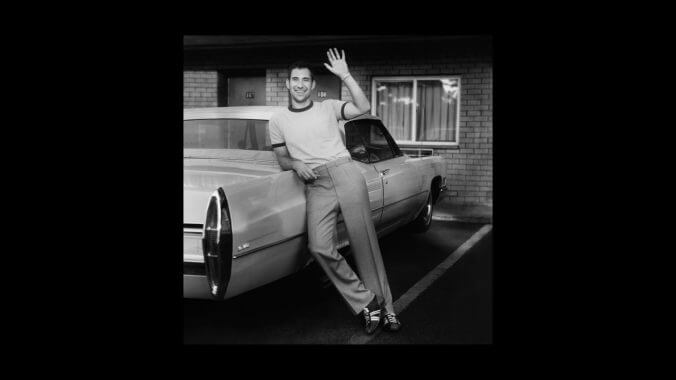Jack Antonoff and His Band Play It Safe on Bleachers
On his fourth record and first album under a new label, the divisive musician maintains his brand as a maker of big, broad pop-rock anthems.

For some time now, it’s been argued that in-demand producer/songwriter Jack Antonoff waters down the music of the artists he collaborates with. Some have labeled him a “bland pop prophet,” others dislike his easily detectable production style, many yearn for his downfall. There’s a ton of validity to the criticisms around his crowd-pleasing appeal and omnipresence in the pop landscape, especially given how much more recognition he’s received in the music industry compared to lesser-appreciated but still just as prolific producers like Rostam Batmanglij and Dev Hynes. The visceral ire he arouses online, however, does sometimes feel a bit overblown, particularly considering how Antonoff is partly yet crucially responsible for helping create some of the most remarkable pop music over the past decade.
His work, for instance, on Lorde’s Melodrama, Lana Del Rey’s Norman Fucking Rockwell!, Taylor Swift’s folklore, and Clairo’s Sling propelled each artist to thrilling, unexpected artistic heights. Sure, Antonoff’s had a few misses as well, but for every Midnights or Solar Power, he’s co-penned a total banger like Olivia Rodrigo’s “Deja Vu” or Lana’s “A&W.” Antonoff has shown he is capable of making exciting, boundary-pushing pop music, which makes it all the more disappointing that he doesn’t always apply the same level of sonic ambition to his own indie pop project, Bleachers.
Since starting the group in 2014 after his previous award-winning outfit fun. went on hiatus, Antonoff has established Bleachers as a band with heavily retro, nostalgic influences—fusing late ‘80s stadium-sized rock with small-scale, radio-friendly songwriting. While that formula has produced some addictive earworms (“Rollercoaster,” “Don’t Take the Money,” “Stop Making This Hurt”), it’s also inhibited Antonoff from truly expanding on and experimenting with his art.
Like the band’s previous outputs, Bleachers is handsomely crafted but ultimately hollow—a consistently pleasant yet never transcendent listen. Even with a label move from RCA to Dirty Hit, very little of Bleachers’s dreamy yet palatable sound has been shaved off. The 14-track album contains all of Antonoff’s usual trademarks: blaring saxophones straight out of Born to Run, heart-swelling strings, gentle-turned-seismic synths, rousing vocal harmonies, lyrics that are as cleverly rhymed as they are emotionally generic. It’s not necessarily a bad thing to stick to something reliable, but one begins to wonder how many more starry-eyed songs about chasing dreams and unrequited romances can Antonoff and his bandmates churn out before it feels like they’ve dried up on ideas.
-

-

-

-

-

-

-

-

-

-

-

-

-

-

-

-

-

-

-

-

-

-

-

-

-

-

-

-

-

-

-

-

-

-

-

-

-

-

-

-








































